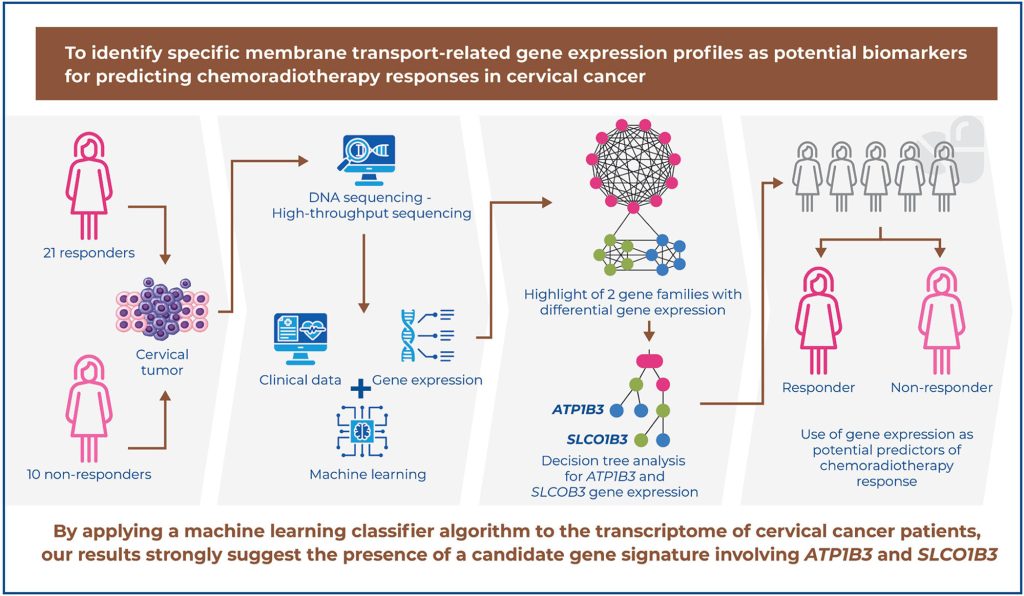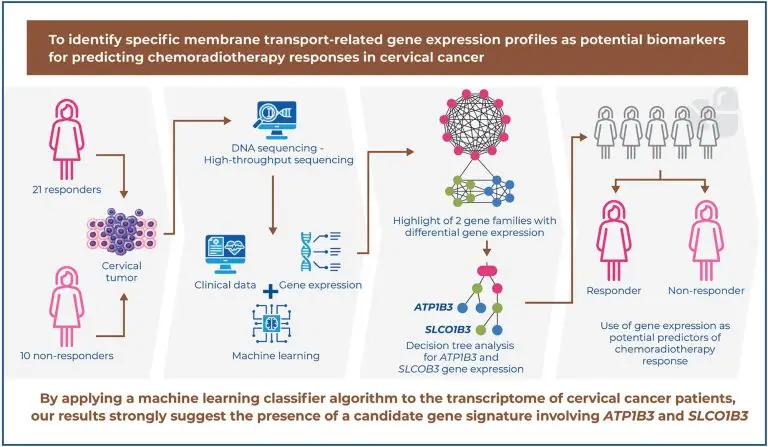einstein (São Paulo). 30/Jul/2025;23:eAO1154.
Membrane transporter genes predict chemoradiotherapy response in patients with cervical cancer
DOI: 10.31744/einstein_journal/2025AO1154
Highlights
■ Two gene groups with contrasting expression profiles were identified.
■ The ATP1B3 and SLCOB3 gene profiles classified patients with 90% accuracy.
■ The ATP1B3 and SLCOB3 gene signature is a potential predictor of treatment response.
ABSTRACT
Introduction:
Cervical cancer is the fourth most common cancer in women worldwide. Resistance to chemoradiotherapy in cervical cancer has been widely associated with membrane transport-related genes, particularly those encoding efflux transport proteins, such as the ATP-binding cassette family members (including P-glycoprotein), which act by expelling chemotherapeutic agents from tumor cells, as well as solute carrier proteins, whose expression impairs the uptake of antineoplastic drugs by cancer cells.
Objective:
This study aimed to identify specific membrane transport-related gene expression profiles as potential biomarkers for predicting chemoradiotherapy response in cervical cancer.
Methods:
Cervical biopsies were collected from 31 patients (21 responders and 10 non-responders) at Hospital Luxemburgo – Instituto Mário Penna. Fluorescence-activated cell sorting was used to separate non-stem cancer cells from cervical cancer biopsies. cDNA libraries from the 21 responders and 10 non-responders were sequenced using the Illumina platform. Expression analysis was performed using R and the DESeq2 package, with differentially expressed genes identified based on log fold change >1 or <-1 and padj ≤0.05. WEKA software and decision tree methods were used to analyze membrane transporters.
Results:
The results revealed two major gene groups with contrasting differentially expressed genes profiles. The first group, comprising SLC35 and ATP13, was overexpressed in non-responders, while the second group, consisting of SLC25 and ATP6, was overexpressed in responders. Decision tree analysis revealed that ATP1B3 and SLCOB3 expression profiles accurately classified patients into responder and non-responder groups with 90% accuracy, indicating that ATP1B3 and SLCOB3 are potential predictors of chemoradiotherapy response.
Conclusion:
Our results strongly suggest the presence of a candidate gene signature comprising ATP1B3 and SLCO1B3 that holds predictive value for chemoradiotherapy response in cervical cancer.
[…]
190




